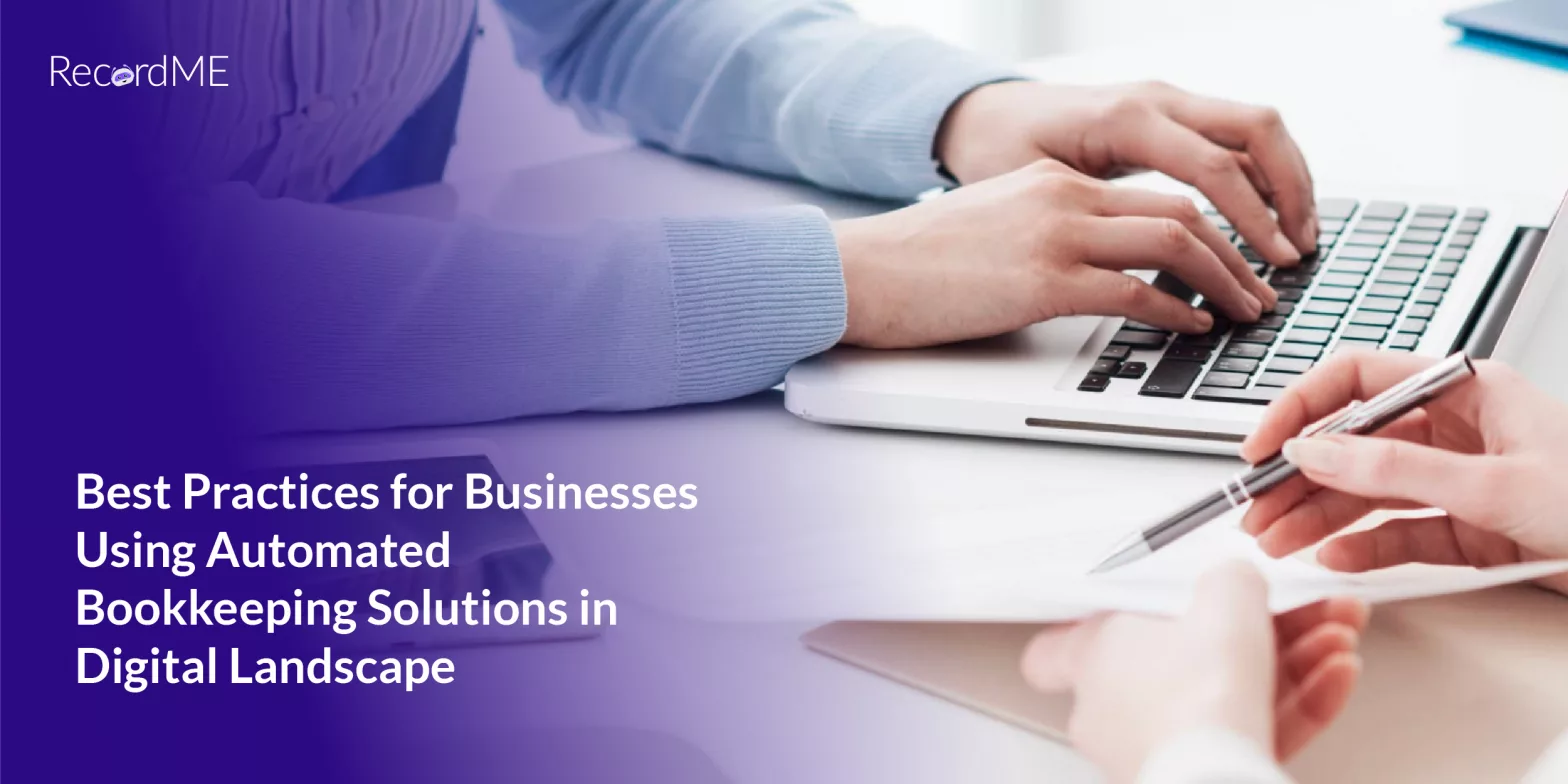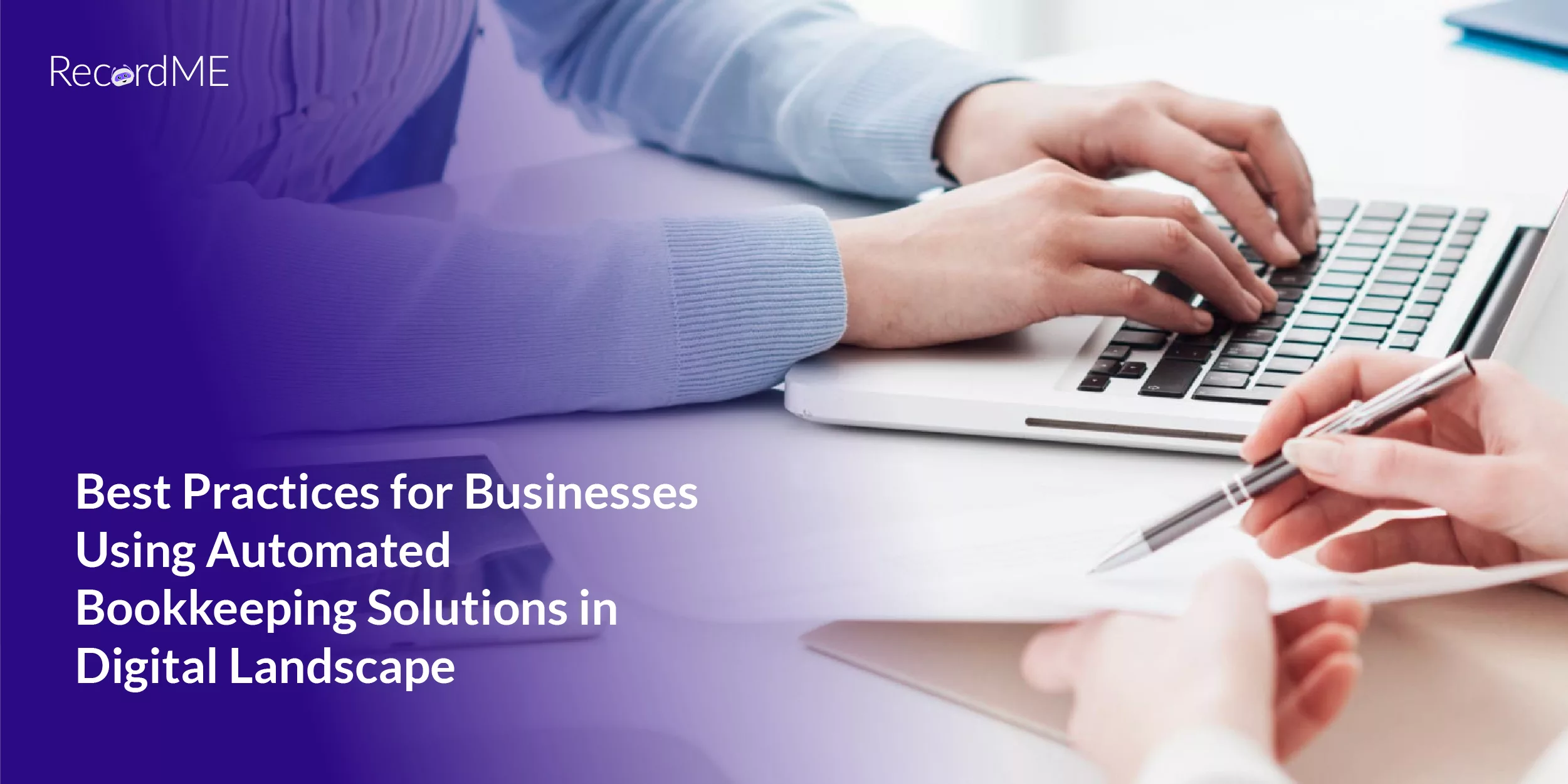Automated bookkeeping is the fastest-growing term in the finance space. Technology is emerging in the form of robotic process automation, machine learning, and artificial intelligence committed to further transform many departments. According to a MarketWatch survey, by 2026, automation is forecasted to grow by 9$ Billion at a CAGR of 29%.
Fintech growth promises to enhance many business aspects of the accounting and finance industry. Key benefits include more accurate projections, quick access to informative data for decision-making, and real-time cloud access. Many automation tools directly target the accounting industry.
Automation Success Depends on Adoption and Implementation
Automated bookkeeping software keeps financial books accurate, forecast revenue, handles reconciliation, and alerts when the company is off-budget. However, a human touch is needed in any finance automation endeavor to anticipate the future. Examples of human interactions are:
Properly integrate sources like payroll tools, bank accounts and inventory software. These initial conditions are required for any type of automated bookkeeping software to function. Automated bookkeeping systems support timely data input like expense reports, accounts payable/receivables, and sales data. These things might be basic but automation tools are only good until someone provides them data. Otherwise, without human intervention, AI tools don’t work properly.
The Emergence of Automation in Finance
In contrast with the popular perception of accounting and finance being risk-averse, it is the early adopter of many new technologies like automated bookkeeping. In the banking sector, organizations start to harness automated bookkeeping systems to fulfill ever-growing demands that get too expensive to handle with few people. Let’s explore deeply what Artificial Intelligence is.
Artificial intelligence is the development of online systems to complete tasks that usually require human intelligence, such as speech recognition, visual perception and decision-making. Experts consider automation and AI as reliable solutions that effectively deal with compliance, risk challenges, and finance. While the utilization of AI systems helps eliminate risks linked with human error, it also raises the question of how much trust the manual risk-averse finance will place in machines.
Audit and risk functions need evidence that strategies are effective. But, the fact is that AI self-learns, handles considerable data volumes, and raises a question about accuracy. Let’s suppose that cognitive systems deliver 97% accuracy in decision-making in contrast to 95% humans, is this sufficient for an organization? How does the company know whether they have achieved accuracy goals? Who will make that call? Where do human intervention end and online software begin?
Technological advancements continue to provide more timely and accurate data, but it always requires human involvement to make strategic decisions. Let’s see a pattern specifically from a financial perspective. Resource-intensive, repetitive tasks like transaction processing and data entry are well suited to AI and automation. AI-driven bots are providing a clear picture of more strategic and efficient finance functions.

Getting the Basics Right
If automation and AI are effective as they should be, then the financial department has the automated bookkeeping tools that every CEO needs. Technology that reduces manual work and human errors for Governance, Risk, and Control (GRC) and transaction processing frees up finance experts for strategic tasks. But, before heading towards automated bookkeeping software, financial experts have to work on their own data. Right, they have to gain a grip on analytics and ensure the quality and integrity of their company information.
Regarding automated bookkeeping services, CFOs should analyze if they can automate those areas that slow down operations and eat up valuable resources. Some of these areas are forecasting, planning, budgeting, operational accounting, financial reporting, reconciliations and intercompany transactions. In short, a significant portion of the workload can benefit from automation. Financial institutions automate repetitive processes that involve large data volumes, specifically in areas where improvements in speed or analytics are an advantage.
Develop Structured Data Analytics
When companies automate key finance procedures, CFOs centralize data processes and develop structured analytics. This way, they ensure that collected data is entered only once and standardized. This shift from on-premise systems to automated bookkeeping software means that all systems can move towards “one source of truth.” This update applies to the entire system and decisions will be made on a single view of data. 57% of CFO agreed that constructing skills in prescriptive and predictive analytics is crucial for the future.
How Auditors can Introduce AI?
Auditors consider external data sources to plan the audit, understand risks, and confirm company assertions every day. To integrate AI into audit methodologies, they need to understand the step-by-step procedure of structured data sets. How are they different from client, industry and source systems? How can they incorporate and measure the accuracy and reliability of data?
How CFO can Blend Emerging Technologies in Companies?
Striking a balance between a company’s most important asset–its people–and emerging technologies is the future of finance. CFOs should remember that success rate depends on employee capability to use technology. Financial experts seem to be positive about AI, they think machines can take over tedious, manual aspects of the work and they can move towards strategic operations.
That is why businesses are taking opportunities to transform their financial departments by deploying the latest automated bookkeeping software. It will be worthwhile if CFOs have the mindset to continually re-evaluate the systems they use and ensure to meet the needs of the business.
Say Goodbye to Manual Bookkeeping with RecordMe
RecordMe can make significant revenue for clients by providing accurate and reliable automated bookkeeping software. Our mission is to bring revolution to the accounting and finance industry through our automated bookkeeping systems. Moreover, tools require humans to use them according to their capacity. CFOs must pair machine learning, automated bookkeeping and RPA tools to take advantage of them.







